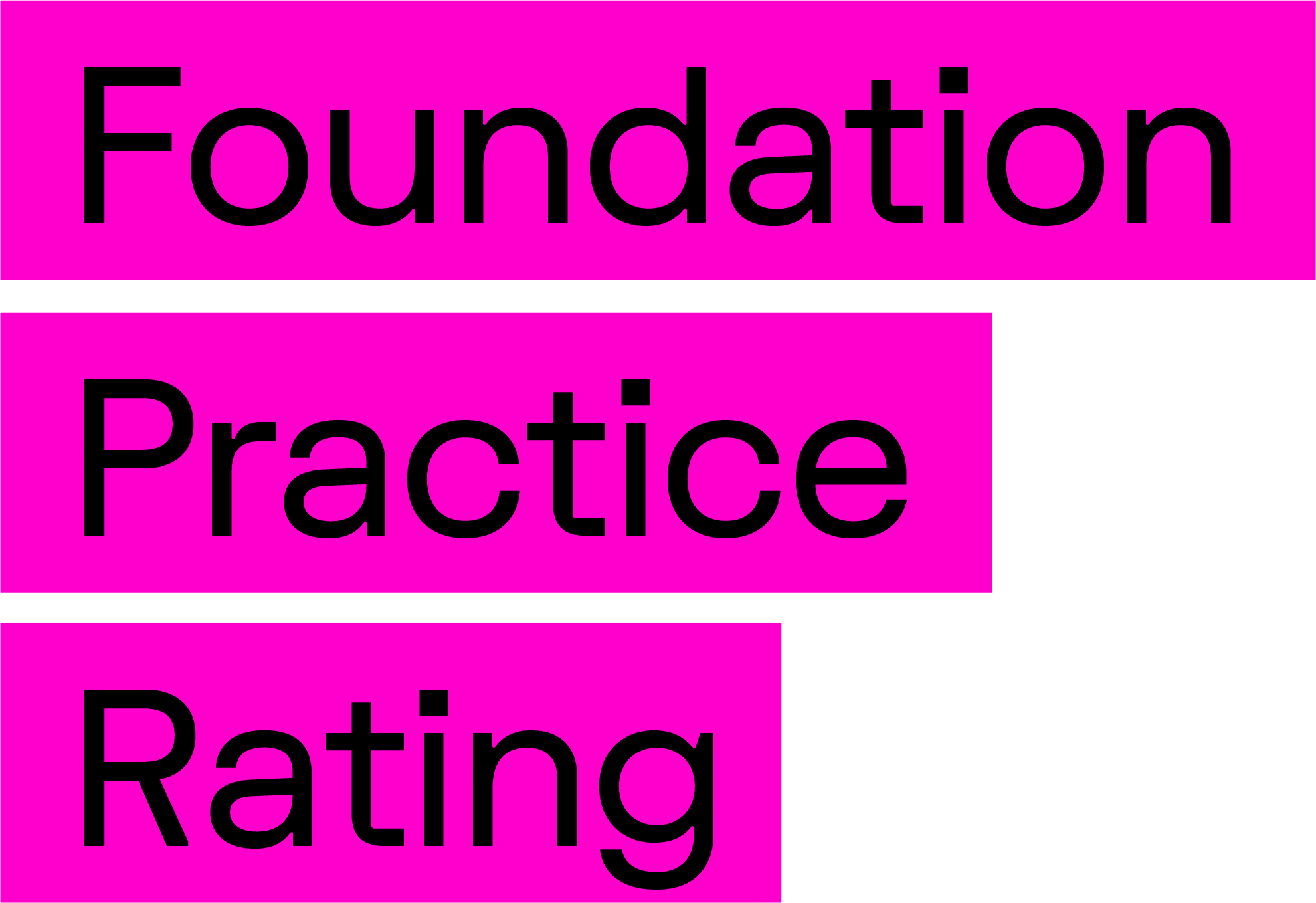Reflections from Jo at Blagrave
The following were flagged by the Giving Evidence team as areas Blagrave needed to address. Its important to say that GE were rigorous and hugely thoughtful about getting the rating right. Our website did not have:
- a breakdown of the diversity of staff or trustees (common across most Foundations), nor a published plan to increase (or maintain) the diversity of staff or trustees
- any way for a potential application who is sight disabled to contact us
- a mechanism for reporting malpractice (though we do have a whistleblowing policy), beyond safeguarding children
- A set of actions we will take as a result of the feedback we gather (and publish annually) from our partners
This first point on diversity breakdown generated a fair bit of reflection and discussion in Blagrave! Whilst it seems obvious to me that we have taken diversity in governance seriously (we are a youth-focused funder working in SE England and our Board is minority white, average age 32 and there is extensive lived experience of the issues we fund – it’s fair to say that board diversity is something we are fairly known for), acknowledging that this is not obvious from the outside and may encourage reductive assumptions about people’s identities based on bios, was not something I’d considered. We have taken steps to rectify this, doing an anonymous survey of staff and trustees, that includes data on gender, disability and race as recommended, but goes a step further to look at age, class and lived experience – essential aspects of our work. This will be published [soon].
However, we have taken the decision to ignore the recommendation to publish targets on diversity. We feel that even without targets, DEI is clearly at the heart of our strategy and embedded in all our work. We also feel that targets for an organisation of our size are not appropriate or useful. This is our choice to make regardless of the FPR criteria, but the process of being rated in this way has supported deeper thinking.
The reflection on how sight disabled individuals apply to us, was an obvious and immediate challenge and we are grateful to the FPR for flagging this omission. We have addressed this by creating a plug in for accessibility on our website and we clearly state our email address and offer support for anyone struggling to apply to us, however there is more to do to learn from others. And on publishing feedback from grantees that also highlights what action we’ll take, with hindsight this is obvious and important. Omitting follow on action suggests tokenism! We know this in Blagrave, and we do act on what we hear, but it’s also our responsibility to communicate that effectively at every point.
Whilst diversity is rightly much focused on and the key pillar where across the board Foundations scored badly (no one got an A rating) the FPR has given me pause for thought about the inter-related nature of the pillars, and on the centrality of accountability in particular. Accountability is ignored at our peril. It is the area that I believe has the most power to transform how we work if we think differently. Why? It seems to me that you can be 100% transparent (and many Foundations scored well on transparency) but not at all accountable to the communities you serve. However, you can’t be accountable to those you serve without transparency. Accountability demands you are clear about your intentions, your decision making and your resources. Likewise in taking accountability to those you serve seriously, you are naturally driven to diversify – not for the sake of reaching targets or because of external pressure to do so, but because your mission demands it. Finally, Foundations have done very little work in meaningfully analysing their impact beyond individual grants, and accountability also demands that we reflect more deeply on this as a sector. We know that our A rating was largely due to how well we did on accountability (through the young people we employ as advisors to our programmes; young trustees; and our strategy which is explicit about driving accountability to young people across civil society, including through initiatives like The Listening Fund).
A final word on culture and size. One of the things that the FPR surfaces when you review the criteria, is the sheer number of improvements that need to be made across so many areas of practice. This can feel daunting and yet, it reinforces the importance of just getting moving on this work – the sector agonises for too long over change. This work takes dedicated planning and time to execute, and is as much about culture and intention, as it is about funder size and resource. I know that if we’d been rated 10, 5 or even 2 years ago, our scores would have been far worse but gradually improving. Over a long period we’ve been consistently checking ourselves on any available measures of good practice that exists in the foundation space and in particular what we’ve learnt from funding partners, committed to learning and adapting practice as we hear about great things others are doing. We are passionate about our partners having a positive experience with us at every level. Quantitative data via the FPR is of course only one measure of this – diverse and inclusive culture and accountable practice is absolutely also about relationships and quality of engagement. But, the FPR provides a useful and a credible tool to help drive what can sometimes be good intentions, poorly executed.
Jo Wells, April 2022

